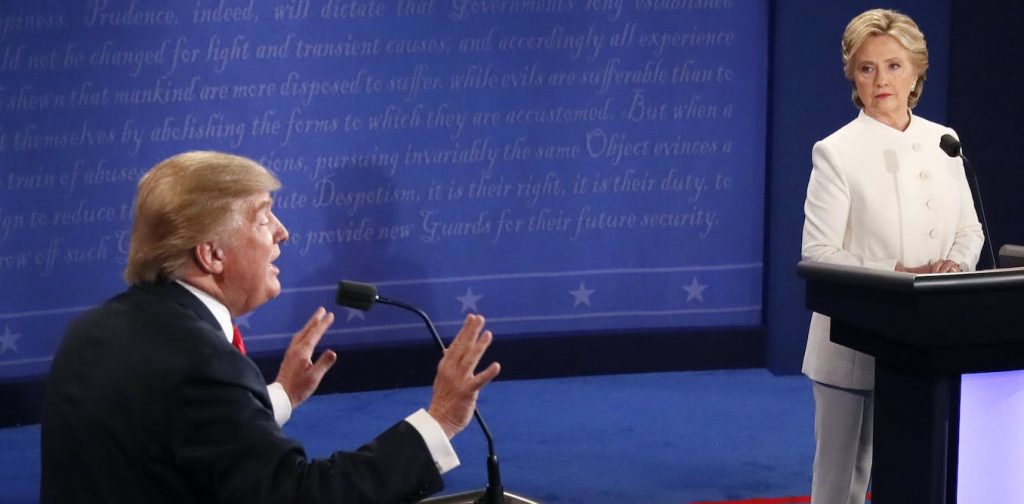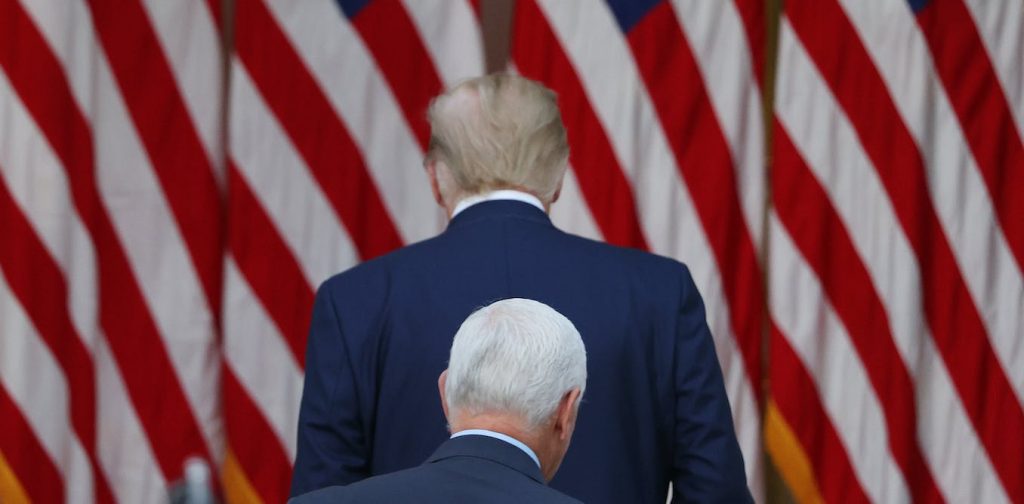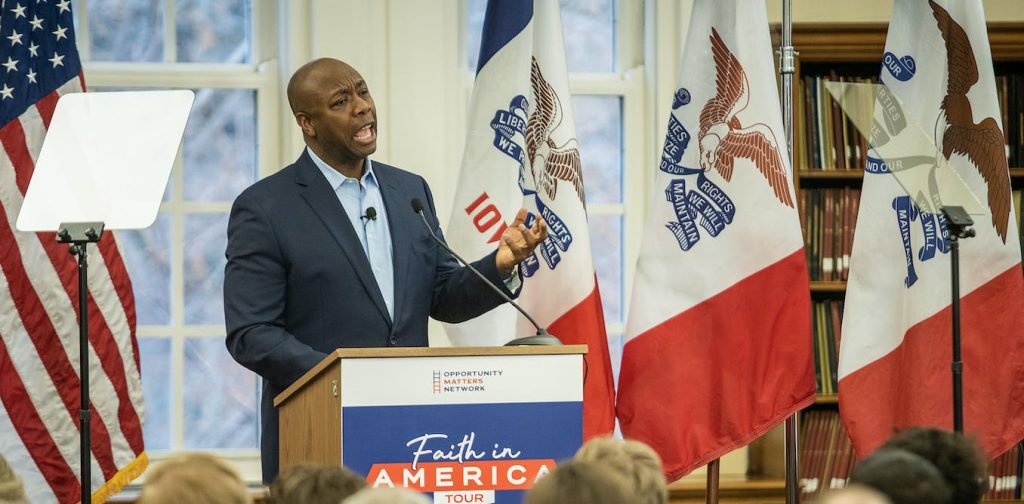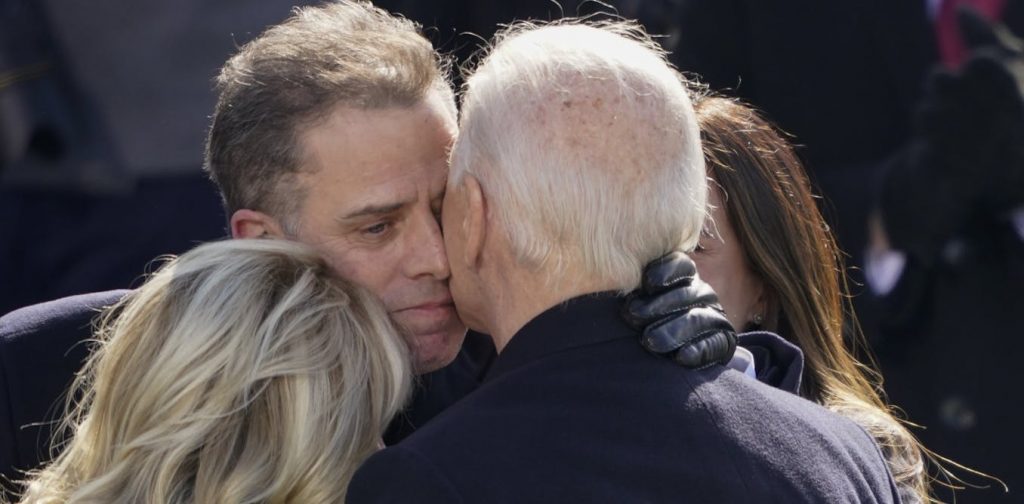First Republican debate set to kick off without Trump – but with the potential to direct the GOP’s foreign policy stance


When Republican presidential hopefuls take the stage in Milwaukee on Aug. 23, 2023, for the first debate of the 2024 campaign season, attention will center on how the candidates position themselves vis-à-vis former President Donald Trump and his four criminal indictments.
What candidates say about foreign policy is another critical issue.
Republican leaders are sharply divided over how the United States should position itself in the world. While some Trump supporters are pressing for the U.S. to pull back from world affairs, more traditional Republicans are calling for robust international engagement.
Ever since the presidency of Dwight Eisenhower in the 1950s, most Republican leaders have supported an active U.S. role in the world. This internationalist approach was first fueled by Eisenhower’s view that the U.S. needed strong military and diplomatic alliances during the Cold War.
In my own research on U.S. foreign policy, I have found that most Republican politicians continued to support international engagement after the Cold War ended in 1991.
From former Presidents Ronald Reagan and George W. Bush to current Senate Minority Leader Mitch McConnell and House Foreign Affairs Committee Chairman Michael McCaul, the prevailing GOP view has been that membership in military alliances like NATO, a strong U.S. military presence overseas and active American diplomacy make the U.S. safer.
But traditional Republican positions on foreign policy are now in flux. Trump’s “America First” vision, which prioritizes American exceptionalism and isolation, challenges traditional Republican internationalism. The Republican primary campaign will help determine the GOP’s foreign policy platform and course.
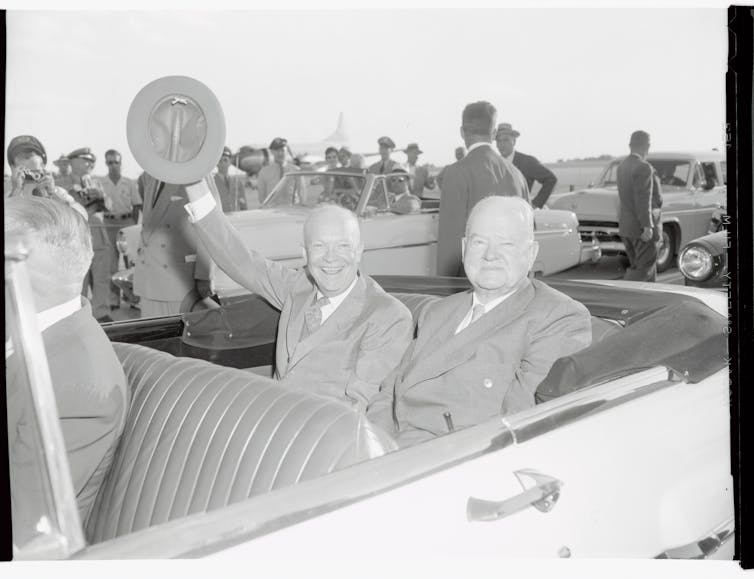 Former President Dwight Eisenhower, left, a Republican, championed the idea that the U.S. should remain strongly engaged in the world. Bettmann/Getty Images
Former President Dwight Eisenhower, left, a Republican, championed the idea that the U.S. should remain strongly engaged in the world. Bettmann/Getty Images
Trump’s split from the GOP
Trump has pursued an inward-looking approach to the world, questioning the value of alliances and calling on other countries to take care of security problems themselves.
As president, he pulled out of several international treaties and councils that are part of the United Nations. He toyed with exiting NATO and tried to withdraw all U.S. troops from Afghanistan.
Some senior advisers and Republican Congress members pushed back on these plans.
Today, as the U.S. actively supports Ukraine with arms and supplies, Trump advocates for a neutral U.S. stance on the war between Russia and Ukraine. He has promised to resolve the conflict within “24 hours” by talking with Russian President Vladimir Putin and Ukrainian President Volodymyr Zelenskyy.
Although Trump has been the dominant figure among Republicans for seven years, his brand of isolationism has been slow to catch on with other Republicans.
Trump, for example, proposed in each year of his presidency to slash the State Department’s budget by about one-third. Republicans in Congress worked with Democrats to reject these proposals every time.
Trump also called Putin a “genius” following Russia’s 2022 invasion of Ukraine. Congress then passed a series of laws in 2022 – with strong support from Republicans – that imposed sanctions on Russia and provided Ukraine with large amounts of foreign aid.
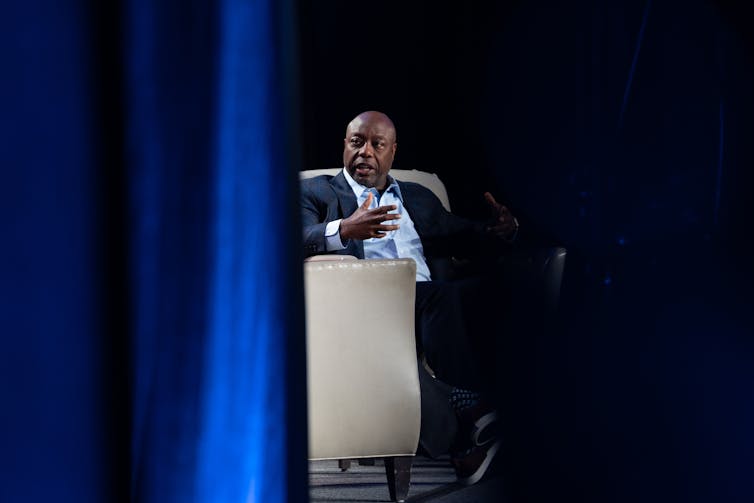 Republican presidential candidate Senator Tim Scott qualified to appear at the debate on Aug. 23, 2023. Megan Varner/Getty Images
Republican presidential candidate Senator Tim Scott qualified to appear at the debate on Aug. 23, 2023. Megan Varner/Getty Images
Republicans distancing themselves from Trump
Nine Republican candidates have qualified for the Aug. 23 presidential debate, and eight of them – all but Trump – are likely to be on the debate stage. Trump has said that he will not participate in the debates.
While the top GOP presidential candidates are largely united in favoring a tough stance toward China, they differ sharply on Ukraine.
Several of the candidates, including former Vice President Mike Pence, former U.S. Ambassador to the United Nations Nikki Haley, Senator Tim Scott and former New Jersey Governor Chris Christie, advocate strong U.S. support for Ukraine.
But some other high-profile candidates, including Florida Governor Ron DeSantis and entrepreneur Vivek Ramaswamy, have called for scaling back U.S. involvement in the war, arguing that America’s involvement is a distraction from more important problems.
There are also signs that overall Republican support for Ukraine is slipping.
Some recent polls suggest that most Republican voters oppose giving Ukraine additional military aid, on top of the more than US$46 billion that the U.S. has already given.
This flagging support for Ukraine aid may reflect the fact that the war continues unabated, without a clear sign of peace talks ahead. Ukraine, meanwhile, has only taken back a small portion of its territory from Russia during its current counteroffensive, leading some Ukraine supporters to question whether U.S. military aid is effective enough to merit its high cost.
 Presidential nominee Nikki Haley is one of the Republican politicians who has spoken out in favor of continued U.S. support for Ukraine. Megan Varner/Getty Images
Presidential nominee Nikki Haley is one of the Republican politicians who has spoken out in favor of continued U.S. support for Ukraine. Megan Varner/Getty Images
The topic is: Ukraine
When foreign policy comes up in Milwaukee or at future Republican primary debates, it will be telling whether candidates say they still strongly back U.S. efforts to help Ukraine, or not.
If some of them hold firm on their support, it will be a sign that the Republican debate over foreign policy remains alive.
But if they change their position, this may be a sign that Trump’s hold over the Republican Party is spreading to a policy area that he previously did not strongly influence. It would also suggest that the MAGA – Make America Great Again – movement has been effective in propagating Trump’s policy views, even while he is not in office.
Beyond the war in Ukraine, America’s global role is at stake this election season. Although the country has acted on its principles inconsistently and highly imperfectly, the U.S. – through Democratic and Republican administrations – over the past eight decades helped to foster a more peaceful, prosperous and democratic world.
In the meantime, I think that Trump’s Republican rivals have an opportunity to make the case for preserving and strengthening the international alliances and partnerships that help keep the U.S. safe. If they make this case effectively, the GOP debate over foreign policy will be primed to continue well beyond 2024.

